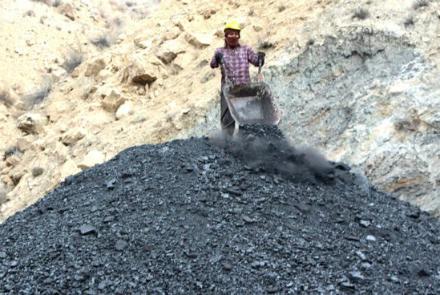Integrity Watch Afghanistan has said the practice of illegal coal mining is steadily increasing, despite government’s decision to close mines because of the problem.
“Illegal extraction (of coal) is increasing day-by-day despite government having made a strong effort (to prevent this) and having good plans in place,” said Abdul Matin Shinwari, a member of Integrity Watch Afghanistan.
Meanwhile, the Ministry of Mines says the authority continues its efforts and is conducting a study to pave the way for legal extraction of coal in the country.
The ministry’s spokesman, Abdul Qadeer Fitrat, said the ministry will look for national and international investment in the country’s coal mines.
“The reason behind this study is to find potential capacity and issues which exist in this sector. We want to find these issues and take measures to address them in order to have big contracts in this respect,” he said.
Afghanistan has rich reserves of coal, in the Jurassic belt from the northern provinces of Takhar and Badakhshan through the center of the country and towards the west in Herat, according to the Afghan ministry of mines.
In 2014 however, the US Department of Labor issued a List of Goods Produced by Child Labor or Forced Labor in which Afghanistan appeared to be one of the 74 countries with noticeable incidence of child labor in the coal mining sector.
Coal has long been mined in Afghanistan and an estimated three to four million tons of coal, valued at $300 million to $400 million, is extracted each year, according to a 2017 estimate by the US Institute for Peace.
However, the bulk of coal mined is believed to be illegal, with little money going to government.


